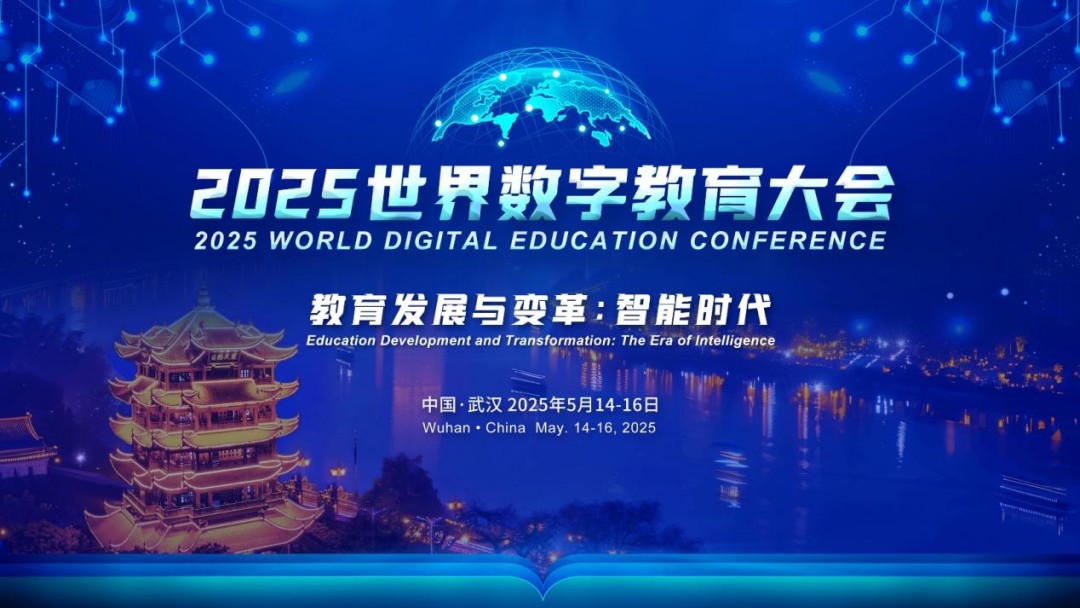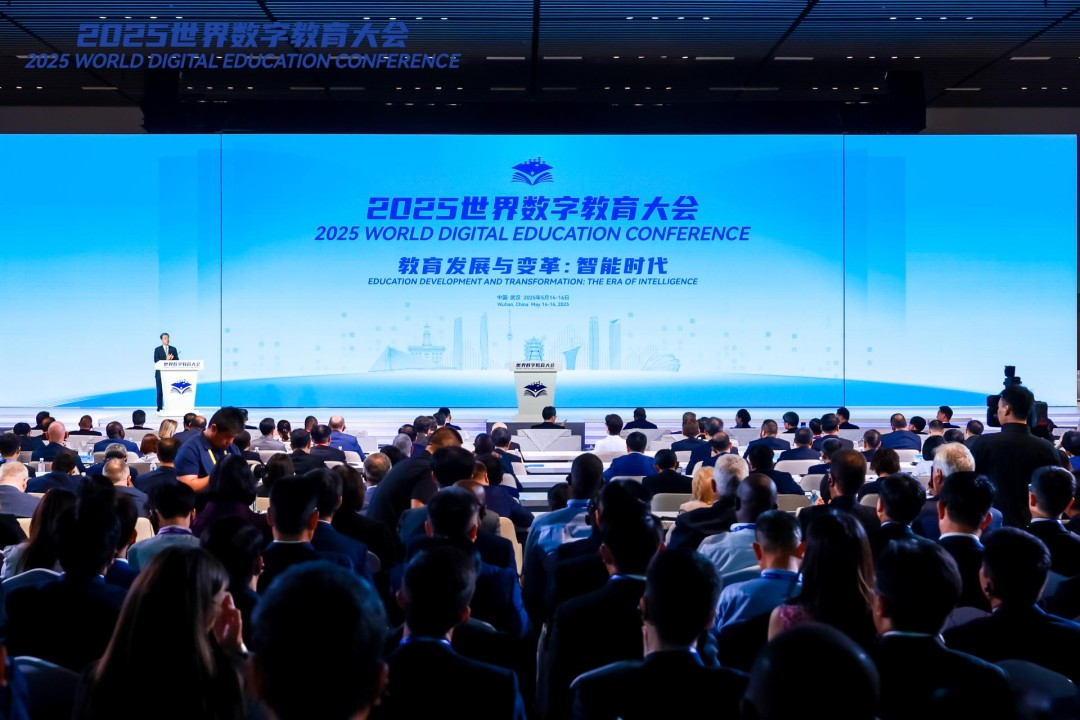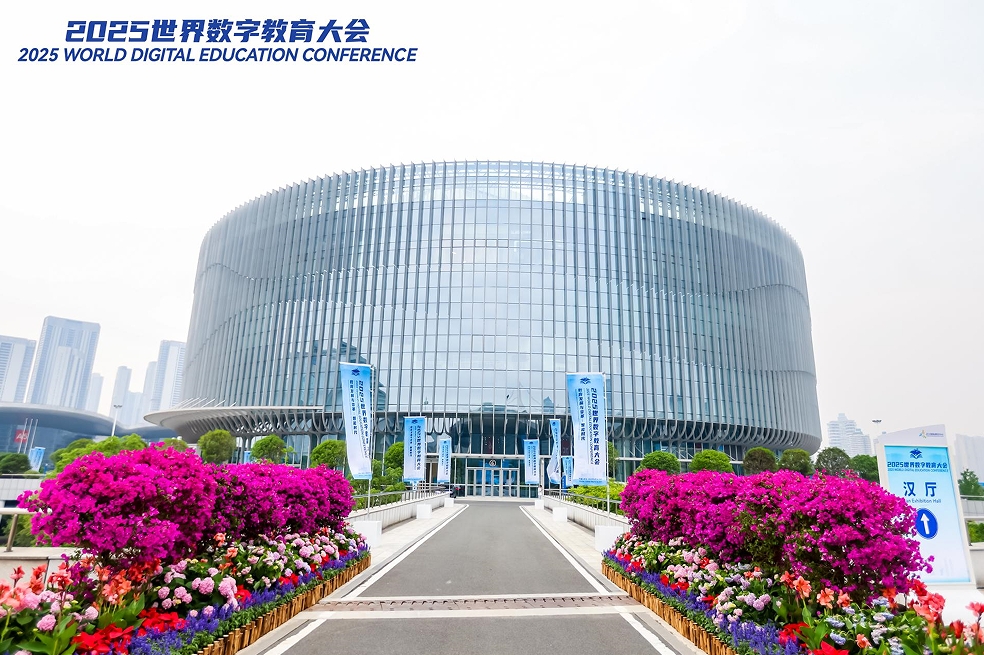The 2025 World Digital Education Conference Opens in Wuhan, Hubei
On May 14, the 2025 World Digital Education Conference opened in Wuhan, Hubei Province. The event is hosted by the Ministry of Education of the People’s Republic of China, the Chinese National Commission for UNESCO, and the People’s Government of Hubei Province. Under the theme “Education Development and Transformation: The Era of Intelligence.” the conference responds to the United Nations’ global initiative on educational transformation. It marks a pivotal moment in embracing a new phase of smart education—setting new benchmarks, exploring innovative pathways, and harnessing the transformative power of intelligent technologies to renew educational content, reshape instructional models, and redefine the learning experience. The goal is to collectively advance the development and transformation of education in the intelligent era.

The conference brings together officials from education ministries around the world, leaders of international organizations, principals, teachers, and student representatives from institutions at all levels, as well as representatives from digital technology enterprises and academic experts. Discussions center on a range of topics, including cutting-edge technologies, policy frameworks, implementation strategies, and digital ethics.

Running from May 14 to 17, the conference also features the Digital Education Achievements Exhibition at the Wuhan International Expo Center. Guided by the principles of “international vision, Chinese characteristics, and digital flair,” the exhibition integrates frontier technologies and multimodal interactive systems to create a hybrid, immersive experience that bridges online and offline engagement. Designed with a narrative structure of “Prologue, Chapters, and Epilogue,” the main exhibition area—“Chapters”—is divided into six core sections: basic education, vocational education, higher education, lifelong education, international education, and future education. The first four sections are each composed of two subsections: “Inception,” which showcases national strategic plans and policy outcomes, and “Implementation,” which focuses on practical digital teaching applications.

The basic education section highlights innovations in instructional scenarios, enriched digital resources, improvements in digital literacy, and evolving assessment frameworks. Vocational education demonstrates the construction of competency-based systems, collaborative resource ecosystems, integrated teaching practices, and industry-education convergence. Higher education features enhanced teaching and research practices, the development of smart campuses, academic program empowerment, and the transformation of research into practical applications. Lifelong education emphasizes the building of a reading-oriented society, the application of diverse technologies, care for holistic well-being, and efforts to close the digital divide. The international education section presents digitalization achievements by international organizations, institutions, and enterprises, while the future education section explores the integration of emerging technologies into education.
A virtual exhibition hall is launched in parallel, built with 3D modeling and panoramic imaging technologies. It offers panoramic roaming, intelligent navigation, interactive features, and data visualization dashboards, presenting a comprehensive view of innovations and trends in digital education. The exhibition serves as a key platform for accelerating the digital transformation of education and promoting global collaboration and exchange.
Ten parallel forums are held during the conference, covering a wide array of topics including basic education, vocational education, higher education, lifelong learning, teacher development, digital education assessment, global digital education governance, digital security and ethics, AI-powered STEM education, and international collaboration in AI and education.
Four schools in Wuhan representing different educational levels—Shenlong Primary School in Wuhan Economic and Technological Development Zone, Wuhan University, Wuhan Institute of Software Engineering, and Hubei Open University—host live demonstration activities. Through technologies such as holographic digital humans and VR/AR immersive experiences, guests are invited to engage firsthand with the concepts of the classroom of the future, school of the future, teacher of the future, and learning center of the future, offering a holistic experience of Hubei’s progress in digitally empowered education. The global digital education exhibition links immersive online and offline viewing experiences to maximize engagement.
During the conference, five landmark outcomes in the field of digital education were released: the White Paper on Smart Education in China; the launch of National Education Digitalization Strategic Action 2.0; the release of the Global Digital Education Development Index 2025; the announcement of the Top 10 Global Hot Topics in Digital Education Research; and the unveiling of the Wuhan Initiative on Digital Education Cooperation.
Media Contact
Company Name: Open Hubei(HICC)
Contact Person: Li Xin
Email: Send Email
Country: China
Website: http://www.hbgbdst.com



